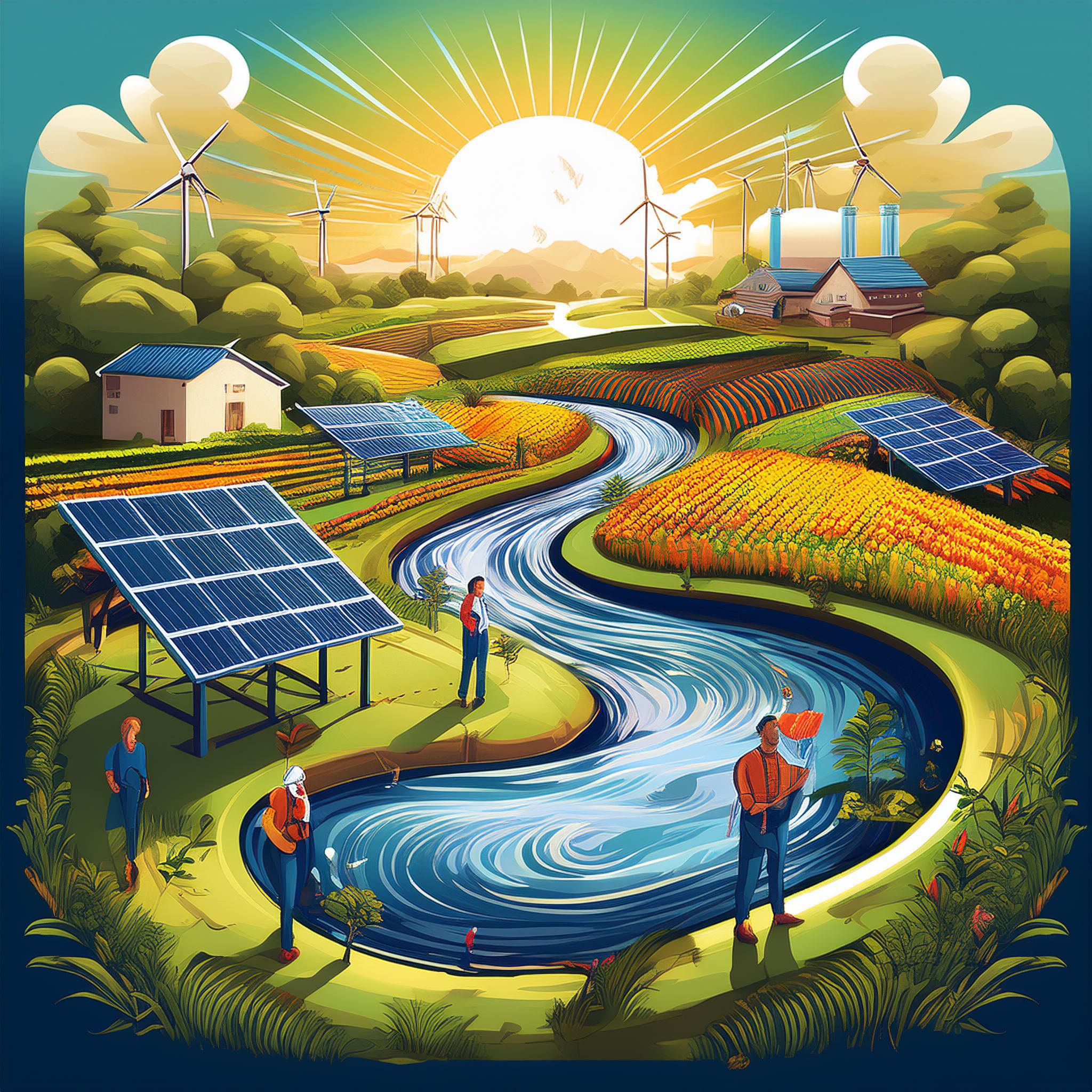
In the 21st century, humanity faces the daunting challenge of meeting the needs of a growing global population while maintaining the health of our planet. Central to this challenge is the intricate relationship between food, energy, water, and people—the so-called "Nexus." Understanding and managing these interdependencies is crucial for achieving sustainable development and ensuring a resilient future for all.
What is the Food-Energy-Water-People Nexus?
The Food-Energy-Water (FEW) Nexus refers to the interconnectedness of these three critical resources and their direct impact on human wellbeing. Food production requires water and energy; energy production often relies on water; and water systems are heavily influenced by energy use and agricultural practices. People sit at the center of this nexus, both driving demand and being affected by the availability and sustainability of these resources.
Let’s break down the connections:
- Food and Water: Agriculture accounts for approximately 70% of global freshwater withdrawals. Water is essential for growing crops, raising livestock, and processing food products. However, inefficient water use can lead to resource depletion and environmental degradation.
- Food and Energy: Modern agriculture is energy-intensive, relying on fuel for machinery, electricity for irrigation, and energy for processing and transportation. The food system is responsible for a significant portion of global energy consumption.
- Energy and Water: Energy production, particularly in thermoelectric power plants, requires vast amounts of water for cooling. Hydroelectric power, while renewable, depends entirely on the availability of water resources.
- People: Human activities influence the demand for food, energy, and water, while policies, technologies, and consumption patterns determine how these resources are managed.
Challenges at the Nexus
Managing the FEW Nexus presents several challenges, particularly as the world grapples with climate change, population growth, and resource scarcity:
- Climate Change: As temperatures rise and weather patterns become more unpredictable, water availability and agricultural productivity are increasingly at risk. Energy systems are also vulnerable to climate impacts, with droughts affecting hydropower and heatwaves straining energy grids.
- Population Growth: By 2050, the global population is expected to reach nearly 10 billion. This will significantly increase the demand for food, water, and energy, putting additional pressure on already stressed systems.
- Resource Scarcity: Water scarcity is becoming a critical issue in many regions, exacerbated by over-extraction, pollution, and climate change. Similarly, fossil fuel depletion and the environmental costs of energy production necessitate a shift toward sustainable alternatives.
- Inefficiencies and Waste: Across the nexus, inefficiencies are rampant. Up to one-third of all food produced is wasted, significant amounts of water are lost through inefficient irrigation, and energy is squandered through outdated infrastructure.
Opportunities for Sustainable Solutions
Despite these challenges, the FEW Nexus also offers opportunities for innovative solutions that can drive sustainable development. By adopting a holistic approach to resource management, we can create synergies that benefit both people and the planet.
- Integrated Resource Management: Policies and practices that consider the interdependencies between food, energy, and water can lead to more efficient and sustainable use of resources. For example, improving irrigation efficiency can reduce water and energy use while increasing crop yields.
- Renewable Energy: Transitioning to renewable energy sources such as solar, wind, and bioenergy can reduce the pressure on water resources and decrease greenhouse gas emissions. Renewable energy can also power sustainable agricultural practices, creating a virtuous cycle.
- Sustainable Agriculture: Techniques such as precision agriculture, agroecology, and regenerative farming can minimize the environmental impact of food production while conserving water and energy. These practices also improve soil health, which enhances water retention and reduces the need for energy-intensive inputs.
- Water-Efficient Technologies: Innovations in water use, such as drip irrigation, wastewater recycling, and rainwater harvesting, can significantly reduce water consumption in agriculture and energy production.
- Circular Economy Models: Applying circular economy principles within the FEW Nexus can reduce waste and create new value streams. For example, agricultural waste can be converted into bioenergy, reducing the need for fossil fuels and closing resource loops.
The Role of People: A Call to Action
At the heart of the FEW Nexus are people—consumers, policymakers, innovators, and community leaders. Achieving sustainability within the nexus requires collective action at all levels of society:
- Consumers can make informed choices that reduce waste and demand for water, energy, and food. Simple actions like reducing food waste, conserving water, and opting for renewable energy can have a significant impact.
- Policymakers must implement integrated policies that address the nexus as a whole, rather than in silos. This includes supporting research and development in sustainable technologies, incentivizing renewable energy, and ensuring equitable access to resources.
- Innovators are crucial in developing the technologies and systems that will drive the transition to a sustainable FEW Nexus. From smart grids to precision farming, innovation is key to overcoming the challenges we face.
- Community Leaders play a vital role in mobilizing local action and raising awareness about the importance of sustainable resource management. Grassroots initiatives can drive change from the bottom up, creating resilient communities that thrive within the limits of our planet.
Conclusion
The Food-Energy-Water-People Nexus is not just an academic concept; it is a real-world challenge that demands urgent attention and action. By understanding and managing the interconnections between these critical resources, we can build a more sustainable, resilient, and equitable future for all. At Retro Energy Group, we are committed to being part of the solution, working with partners across sectors to innovate and implement practices that support a thriving nexus and a healthier planet.
